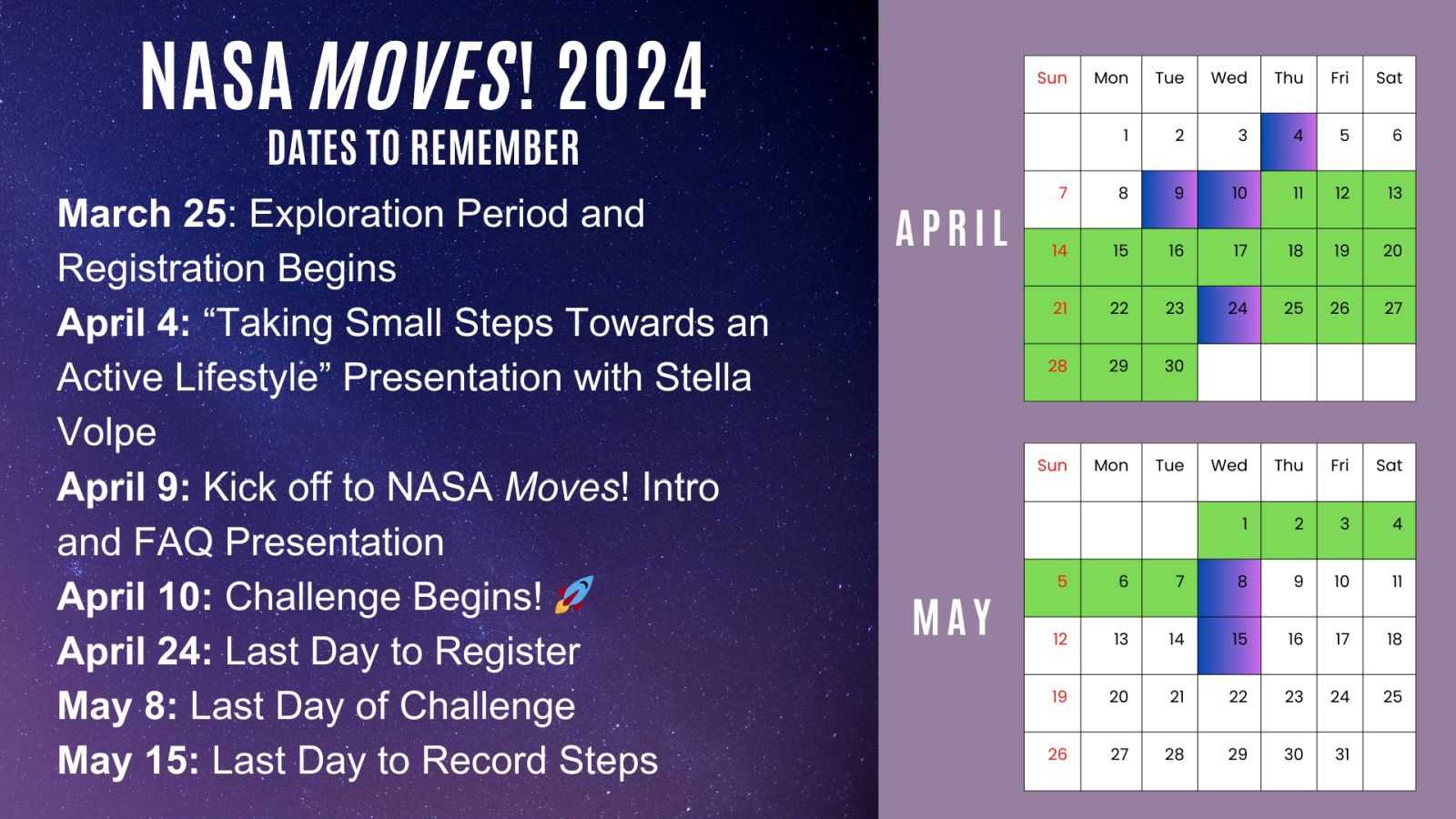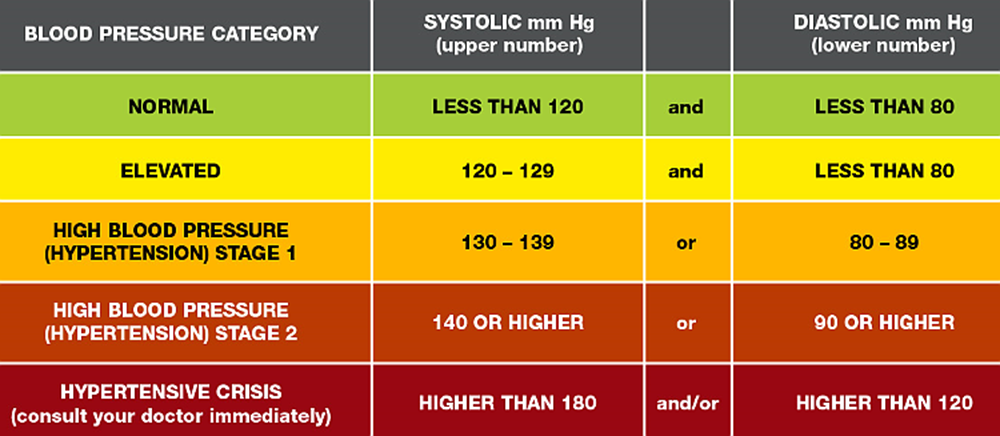Goddard Greenbelt Health Unit
Health Unit Staff
Dr. Sheryl Ashton-Jones (Medical Director), Kathering Paolucci (Nurse Manager), Adrian Crowe (Nurse Practitioner), and Sharon Wester (Receptionist)
Health Unit Information
Hours of Operation Effective April 1, 2024: 8:00 am to 4:30 pm -- closed from 12 pm to 12:30.
Call for appointments and questions at 301-286-6666
The Health Unit is open to ALL for emergency triage, Health and wellness services are available for all Civil Servants (occupational medical examinations/medical surveillance and walk-in emergency injuries and illnesses
What's New

Mission HEALTH
OCHMO’s announces initiative to support all NASA Centers’ health promotion, wellness, and safety efforts (e.g., events, speakers, activities) using an Agency-wide approach, promoting availability to the entire workforce.
With the integration of Health Promotion, Wellness, Physical Fitness, Mental Health, and Safety we will support the workforce for both in-person and virtual working environments in line with NIOSH’s “Total Worker Health” objectives. Aligning the dynamic landscape of change to positively impact overall whole-person health and wellness will uphold Agency program sustainability, impact, and growth.
For more information visit: https://nasa.sharepoint.com/sites/health4life/
Agency Drug Testing Program
This HR Message is being delivered to you via HRMES On Behalf Of: Agency Drug Testing Program Manager Cannabidiol (CBD) oil, which is a chemical compound extracted from the flowers and buds of the hemp (cannabis sativa) plant, has increased in popularity because of the claims that it is a natural remedy for common ailments such as chronic pain and anxiety. There are no standards governing the manufacturing of products containing CBDs; however, products that contain pure CBDs typically has less than 0.3% of the Tetrahydrocannabinol (THC), the psychoactive compound of the cannabis plant associated with the sensation of feeling “high.” The lack of standards means there are CBD products being marketed that contains a sufficient level of THC to cause a positive drug test result. Please be aware that, the use of any compounds or substances not approved by the FDA cannot be used as a legitimate medical explanation for a positive drug test result.
As a reminder, the use of illegal drugs by federal employees is not permissible under any circumstances, regardless of state and/or local laws; this includes the use of Marijuana or products that contains THC for recreational and/or medical purposes.
NASA is authorized to conduct pre-employment testing of any individual who will occupy a testing designated position (TDP) and Random testing of employees who occupy a TDP. All employees are subject to testing under provisions for reasonable suspicion and post-accident and/or unsafe practice testing regardless of the TDP designation of their position.
For more information about NASA’s Drug-Free Workplace Program, please see the NSSC Drug Testing page at https://www.nssc.nasa.gov/drugtesting.
“Bee” prepared for bee and wasp stings
Summer's the season for gardening, playing outside, backyard picnics and enjoying the outdoors. It's also the season of stinging insects, such as honeybees and wasps. According to the American College of Allergy, Asthma and Immunology, about 5% of people are allergic to stinging insects.
Reactions to stings
Reactions to stings from honeybees and wasps’ range in severity from minor to potentially fatal. In most cases, stings only are annoying, and cause a brief, sharp pain, along with slight swelling and redness. Only home treatment is needed to ease the pain.
If you're allergic to insect venom, a more severe reaction, called anaphylaxis, can occur. This requires emergency medical attention.
Here's what happens when you're stung and have an allergic reaction: Your immune system reacts to the venom injected by the insect, and triggers your body's release of histamine and other chemicals. This response can cause severe reactions in some cases, such as:
- Difficulty breathing
- Dizziness and nausea
- Itching and hives throughout the body
- Swelling of the throat and tongue
- Stomach cramps and diarrhea
- Rapid fall in blood pressure, resulting in shock and, possibly, death
If you or someone you're with experiences any of these symptoms, you should immediately seek emergency medical care.
Treating stings
After any sting, remove the stinger as soon as possible. Use your fingernails or tweezers to scrape away the stinger. Don't squeeze the stinger or venom sac, which can cause more venom to be pushed into the sting area. Once the stinger is removed, wash the area with soap and water.
If you notice a minor to moderate reaction, such as redness, warmth or swelling around the sting, apply a cold compress and take an over-the-counter oral antihistamine. You also may want to apply hydrocortisone cream or calamine lotion to the area to ease symptoms.
Call 911 if you have a more severe reaction to a single sting or multiple stings, even if it's just one or two of the serious symptoms listed above.
Preventing stings
These tips can reduce your risk of getting stung by honeybees and wasps:
- Take care when drinking sweet beverages outside. Use cups with lids or water bottles with straws. Inspect cans and straws before drinking from them.
- Tightly cover food containers and trash cans.
- Clean up dirty dishes and remove food when you're done eating so they don't attract stinging insects.
- Wear closed-toe shoes when walking outside.
- Avoid wearing floral-scented perfume and lotions, as well as bright colors or floral prints, which can attract stinging insects.
- Be careful when mowing the lawn or trimming vegetation, which might disturb a beehive or wasp nest. If you come across a nest or hive, leave it alone.
- Have hives and nests near your home removed by a professional.
- If a few bees are flying around you, stay calm and slowly walk away. Swatting at an insect may cause it to sting.
- If you are stung or if many insects start to fly around, cover your mouth and nose and quickly leave the area. If you can, get into a building or closed vehicle. When a honeybee stings, it releases a chemical that attracts other bees.
If you've experienced an allergic reaction to a honeybee or wasp sting, talk with your primary care provider or an allergy specialist about prevention and treatment options. This could include being prescribed emergency medication, such as an epinephrine auto-injector, to use if stung.
Allergy shots may be recommended as a long-term solution. Venom immunotherapy has been found to be 95% effective in preventing future allergic reactions to stinging insects. It increases your tolerance to venom by injecting a small, increasing amount of venom weekly. Over time, your body stops perceiving the venom as a threat and reduces or eliminates your allergic response to it.
Be prepared to prevent and treat honeybee and wasp stings as you enjoy outdoor summer activities.
Blood Pressure Guideline Changes

Newly released blood pressure guidelines could lead to nearly half of US adults to be diagnosed with high blood pressure. High blood pressure, also known as hypertension, is a major risk factor for heart disease and stroke – the two leading causes of death in the world. In the new recommendations Blood Pressure less than 120/80 is still considered normal, but levels at or above 129 are considered elevated.

The new guideline is designed to help people take steps to control their blood pressure earlier. There are lifestyle changes you can make to help manage your blood pressure. The American Heart Association has provided resources for you to learn more about your blood pressure, its effect on your health, understanding symptoms and risks. Included in these resources is a Heart Risk Calculator which calculates your chance of having a cardiovascular event in the next 10 years.
Proper Disposal of Sharps – Health Units' Disposal Option
The GSFC Health Units welcome the opportunity to educate employees on the proper disposal of sharps and offer the option to dispose of sharps at the GSFC Health Units.
Please note, the sharps program ONLY ACCEPTS SHARPS USED AT WORK. We do not accept open needles or any razors. Please read attachment for detailed information.
NASA Employee Foreign Travel Emergency Medical Support
NASA provides medical and emergency evacuation support to NASA civil servant employees traveling on official government business outside the continental United States (OCONUS).
Global Rescue LLC is the Agency-level provider for this support.
Please visit https://nasa.sharepoint.com/sites/ochmo-foreigntravel for detail information
Program Contacts:
- Marla Giscombe, Health Program Manager, 301-286-9012
- Health Unit, 301-286-6666



